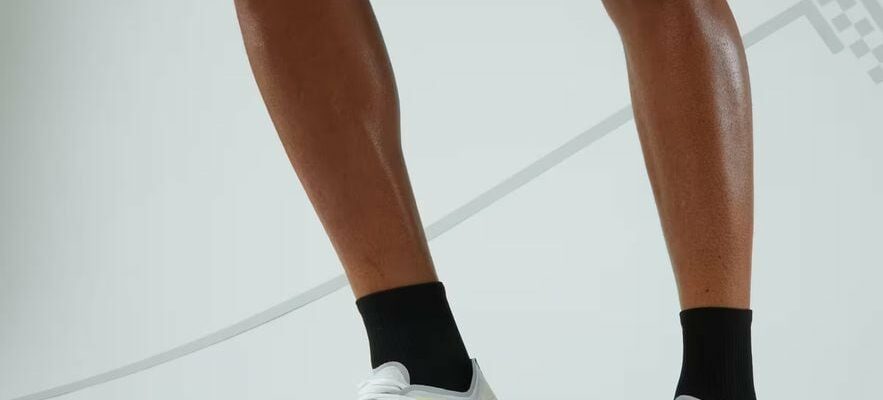What do a running shoe with a Decathlon carbon plate, an FCS surfboard fin, Puma football cleats and a Look bicycle frame have in common? Sports, of course. But above all, all this equipment contains a material, an additive or an adhesive manufactured by the chemist Arkema. The French giant, which has more than 21,000 employees worldwide and a turnover of 9.5 billion euros in 2023, has been one of the little-known partners of many sports brands for several decades. .
As the 2024 Olympic Games approach, the company would dream of proclaiming out loud the disciplines in which it will be present. But the confidentiality of certain contracts requires him to reduce his communication to a minimum. “It’s frustrating, but it’s normal because we are a B2B group (Editor’s note: business-to-business, which does not address directly to the consumer). When we work on a shoe, we don’t see our brand, we only provide materials to the equipment manufacturer”, admits Frédéric Cavicchi, scientific mediator for Arkema. A few figures still allow us to account for its position in the sector. During the last Tokyo Olympic Games, 80% of the athletics medalists wore equipment that had been developed with at least one process created by the group’s engineers and chemists. For the Parisian edition, the company expects an even higher figure. In 2022, during the Football World Cup in Qatar, 72% of players wore shoes made from Arkema materials.
Materials 15 to 20% lighter
Pebax, Rilsan Rnew… These names mean nothing to the general public, yet they are well known to sports equipment manufacturers. Registered by Arkema, these brands designate materials, some of which were developed more than 60 years ago. They are used, for example, to make the bottoms of crampons, bicycle helmets or even the soles of running shoes. Why do brands turn to Arkema? For its high performance know-how. “In general, our materials are between 15 and 20% lighter than comparable materials that can be used elsewhere,” promises Sébastien Merzlic, sports and textile communications manager.
In high-level sport, every detail counts, starting with the weight of the equipment. “When a cycling team buys a bike, it will be ready to pay 500 euros more to have ten grams less. The gram gained is very difficult to obtain. Thanks to these materials, we can considerably reduce the weight of the equipment” , assures Frédéric Covicchi. In the legendary marathon event, these technologies made it possible to save up to one to two minutes on the final time. While the feat was previously unthinkable, Kenyan runner Eliud Kipchoge covered the 42.195 kilometers distance in less than 2 hours in 2019. A record which, however, was not approved because it was not achieved during an official race.
Working hand in hand with the equipment manufacturer
For its materials, Arkema applies extremely high standards. “Running shoes, for example, must allow rapid responses, encourage changes of direction and minimize energy loss in order to facilitate the runners’ stride. Small tenths of a second are gained on this type of model. We also place a lot of emphasis on durability so as not to have a deterioration in performance over time,” explains Sébastien Merzlic. Each year, the entire Arkema group files no less than 200 patents. Many will never make it past the industrial stage. When a material passes all the tests, the work doesn’t stop there. “We are not just suppliers of materials for the brands we work with. We really have a role as a partner. If the design of a piece of equipment is not up to standard, even if there is the right material, we are not going to succeed in skipping the step which will allow us to reach a certain level of performance”, illustrates Sébastien Merzlic.
Decathlon understands this well. The world leader in the distribution of sporting goods aims to play a leading role in professional sports equipment. The brand has been working with Arkema for more than 20 years. Together, in 2022, they developed the KD900X, a running shoe with a carbon plate at a price much lower than the competition. Each was able to benefit from the expertise of the other. “Decathlon has a research center, where its teams carry out tests in real conditions and in particular develop shoes with athletes. Resources that we do not have available at Arkema. For our part, we test the shoes very carefully. materials, their manufacturing, but not the final product We are very complementary,” says Karen Loyen, global research director for polyamides at the chemist. “We partner with the best to make the best products,” summarizes Anthony Dulieu, Kiprun brand manager at Decathlon. A winning bet. Méline Rollin, French marathon record holder, will wear KD900X during the event which will take place on the last day of the Paris 2024 Olympics.
The KD900X developed by Arkema and Decathlon.
© / Decathlon
However, Arkema still has a way to go before becoming known to the general public. In recent years, the group has increased its sports partnerships. The company has given its name to the French women’s football championship since 2019 in exchange for a check for one million euros per year. And this until 2025, when it will also become an official partner of the French women’s team. Its logo also appeared for several years on the sails of boats entered in different races. First during the football Euro in Germany, then at the Olympic Games, Arkema will try to shine in its own way, in the shadows.
.
